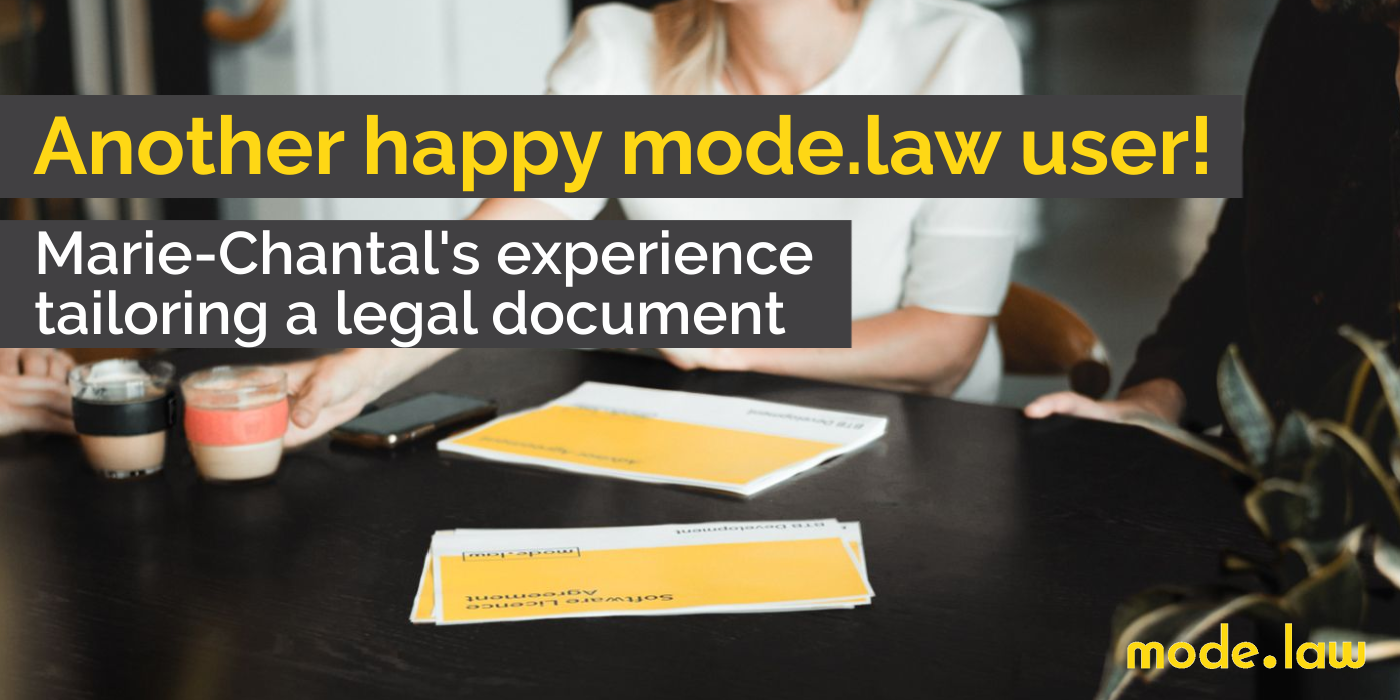mode.law Director Yule Guttenbeil Sits Down With Ticker Jumpstart

In this interview on Ticker.TV, mode.law’s Yule Guttenbeil discusses common pitfalls experienced by entrepreneurs in pandemic. These range from corner-cutting on professional advice, through to contract-copying; both of which put Australian businesses at risk. Watch the full interview or read the transcript below.
How does mode.law help Australian business owners?
mode.law is a system that allows business owners to do as much of their own legal work themselves before they engage a lawyer, and it provides a few different ways of getting in contact with a lawyer such as a chat window where you can ask quick questions of a general nature, anything up to 10 minutes. If you need something a bit more in-depth then you can book a consultation with the lawyer through the site which helps you control costs.
We’re making subscriptions to the mode.law site free until the end of September, and we have Attune Legal who provide their chat service free of charge as well as throwing in discounts on the legal work they provide through the site. We’re just doing what we can to help businesses struggling through this pandemic.
What are the documents that most businesses are looking for during the pandemic?
Employment Agreements are the documents that are being used the most on our site at the moment, and we get most questions about though the chat window. With a downturn in productivity, people are looking to either let staff go or trying to re-position employees into different roles. Our Employer Agreement template of the site is really useful for those situations.
Another popular document is the Terms of Trade or Terms of Service. Those documents usually set the rules for business relationships between customers and other suppliers, because people want to make sure they’re getting paid. Things are all good until something goes wrong, and people are getting caught out by not having those documents.
Businesses are having to shift gears so fast in order to stay afloat. I’ve spent a lot of time talking to people working in hospitality and they’re having to flip from only providing takeaway then to serving, and having staff on and then not, and some haven’t got Jobseeker because they’re from overseas. etc. It’s a minefield for small businesses. Do you think having these kinds of documents simply the processes for them?
Yes, it can help them make changes to the way their business operates through this period. One thing we want business owners to think about is to not pull back from their professional advisors. That’s not just lawyers, but it’s accountants and even mortgage brokers and financial advisors. They can help you through this period because they know things that you just don’t. They can help you save costs as they might be aware of grants that you’re eligible for and provide strategies for dealing with the downturn and trading through it.
It’s an interesting time with Covid-19 and obviously businesses are struggling but others have managed to pivot and stand out. What do you think has been a success stories when it comes to businesses standing out during the pandemic?
I think the businesses that deal directly with the demands of the pandemic are the ones who stand out. One that comes to mind is St.Ali café. They’ve got a distillery in store and started making hand sanitiser. Also, the project Toyota took on where they started using their prototyping facilities to create PPE. These are the pivots that I think are really helpful in this time. Takeaway service for restaurants is really just a life line to help them survive, and just being realistic as to how to bring in cash and change the way you operate.
Going back to the mode.law’s core business of contracts, what are some of the disasters that business owners can fall for? Are people really using other businesses contracts and just changing the names? Does that actually happen?
Yes. What a lot of people will do is go to what appears to be a business just like theirs and then look at what documents they’re using for their terms of trade or terms of service and then they’ll download them and just change a few details like the address and name of the business and think that’s going to work. But what you basically need to be successful in any business is to differentiate yourself and those small differentiations and what makes you stand out are actually really key to document in your legal agreements. When we created mode.law, we looked at where those variables tend to be and we then created templates that ask the right questions. Basically, the same questions a lawyer would ask in a consultation to get down to the nuts and bolts as to how your business operates and then the document can be generated that will either get you there for 99% of the way. Then you can get in touch with one of our lawyers to finish up the missing 1%.
What’s the biggest take-home we can get from you on the show this morning?
The biggest take home is to continue to value the advisors around you and don’t be asked to ask questions to the people in the know. You’d be surprised at how willing professional service advisors are through these times, and if the cost is an issue then they’re usually pretty happy to talk about that as well.

